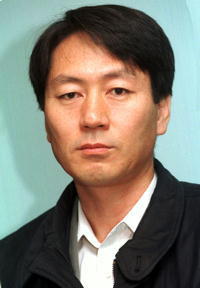 |
The expression "a Japan that can say ’yes’ " is symbolic of the situational reversal. The fact that right-wing U.S. nationalists enjoy using it is evidence of how they resented and are still unable to forget the humiliation they experienced at the hands of the Japanese economy 20 years ago. The memory of that group humiliation might have contributed to how many former progressives turned into neocons. Today, however, Japan looks to the U.S., and now that U.S. right-wingers can have Japan do whatever they want, they are openly encouraging Japanese nationalism in order to have Japan rearm itself. It is to these same neocons that Korea is the U.S.’s "least helpful ally." Roh Moo-hyun's government becomes a curse of "pro-North leftists" and "rear battalion of the Kim Jong-il regime." Read the Weekly Standard and you see it immediately. The Korean neocons who disguise themselves as patriots respond in perfect harmony. The Philadelphia Inquirer is the third oldest newspaper in the U.S. Its circulation ranks 15th, and its Sunday edition ranks fifth. On November 5 it ran a column titled "Imagine no Military in Korea." In it, the writer, Jonathan Last, says that "no matter how [the South Korean people] antagonize America," the U.S. still has to bite down and keep its military in Korea for the benefit of true allies, loyal nations like Japan, Taiwan, and Australia. The piece is full of disgust for the situation and ill will towards Koreans. It is the kind of thinking that is typical of U.S. neocons. They invoke all sorts of trivial data to portray Koreans as ungrateful, and while there is nothing particularly new about their excessive narcissism and childish ways of turning a fact on its head, lately the extent of it all has gotten disgusting. Are the Korean people really happy because of the U.S.? Neocons claim the U.S. made South Korea able to live the good life, but that is little different than right-wing Japanese claims that Korea modernized because of Japanese colonial rule or that China is successful because the Japanese military invaded the continent. These are people who, if Vietnam becomes an economic success, will undoubtedly say it was the result of invasions by France, Japan, and later the U.S. There is something they are either forgetting or ignoring. Most people in a divided land cannot be happy, the U.S. provided the reasons behind the abnormal situation on the Korean peninsula and the resulting unhappiness, and the U.S. is enjoying a massive amount of strategic interest by intervention in East Asia based on the unhappiness and abnormal situation suffered by others. [englishhani@hani.co.kr]





